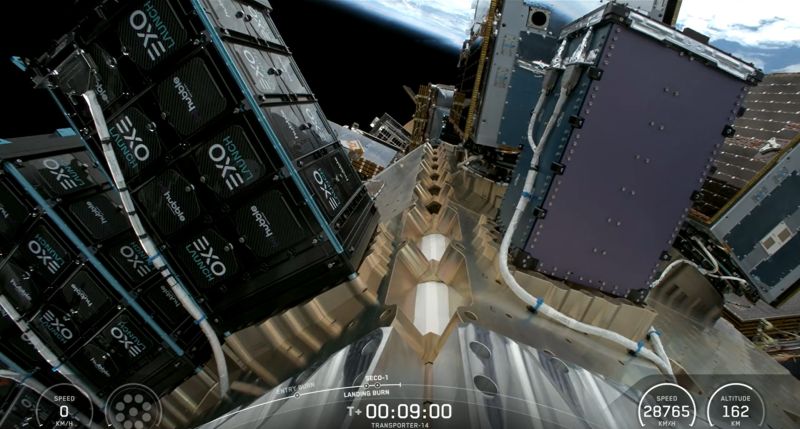SpaceX launches UK satellite to create semiconductors in low Earth orbit — sub-zero temps and vacuum of space could advance AI data centers and quantum computing
CPUs with parts fabricated in space may be coming soon, assuming the ForgeStar-1 experiment succeeds

Manufacturing advanced computer components of the future may take place in space rather than on Earth. Space Forge, a UK-based startup, had its ForgeStar-1 satellite launched into orbit via SpaceX, paving the way for the satellite to ignite its forge and begin producing semiconductors in space.
ForgeStar-1 is officially the UK's first ever in-space manufacturing satellite, enabling the company to build semiconductors in space. The satellite was entirely designed and built in Cardiff, Wales, and launched into space as part of SpaceX's Transporter-14 rideshare mission. The satellite waited for approvals in the United States since April before finally entering orbit today.
ForgeStar-1 has yet to ignite its forge, with the timetable for when this will happen not yet public. "We've built and launched Britain's first manufacturing satellite, and it's alive in orbit. That's a massive technical achievement," shared Space Forge CEO Joshua Western. "Now, we take the next step: proving that we can create the right environment for manufacturing in space. This is the start of a new era for materials science and industrial capability."
In-space manufacturing is a relatively new field that seeks to utilize the unique characteristics of outer space and/or low-Earth orbit to achieve fabrication methods not possible on Earth. Space Forge's primary goals are to produce semiconductors for data center, quantum, and military use cases, using "space-derived crystal seeds" to initiate semiconductor growth, utilizing unlimited vacuum and subzero temperatures for manufacturing, and then returning the chips to Earth for packaging.
The ForgeStar-1 satellite will not bring the cargo it manufactures back to Earth at the completion of its mission. Acting more as a proof-of-concept and prototype for a litany of technologies engineered by Space Forge, the satellite will be tasked with running through the successful application of key technologies for in-space manufacturing, and will end its mission with a spectacular fireball.
Space Forge plans to test both the best-case and worst-case scenarios for the satellite's recovery. First, it will deploy its proprietary Pridwen heat shield and on-orbit controls to steer the satellite, and then test its failsafe mechanism, which involves disintegrating the craft in orbit.
The company's roadmap from 2022 shows that ForgeStar-1's successor, ForgeStar-2, will be the first craft from the company to develop semiconductors that will be returned safely to Earth. The craft will develop enough chips so that the "value of the material manufactured in space exceeds the cost of placing the satellite into orbit", and will be joined eventually by a full stable of Space Forge satellites. The company eventually hopes to build 10-12 satellites per year, reusing craft after the completion of their one- to six-month fabrication missions. Eventually, the company aims to surpass 100 satellite launches per year.
Get Tom's Hardware's best news and in-depth reviews, straight to your inbox.
While the craft may not ever reach terra firma safely again, the prospect of space-based manufacturing is attractive for several reasons and to a variety of clients. Materials crucial to the bleeding-edge of semiconductor fabrication, including gallium nitride (GaN) and silicon carbide (SiC), can now be worked with to create new chips with the unlimited vacuum of space, in subzero temps without the need for cryogenics, and in a near-weightless environment. If in-space manufacturing catches on, it may become an interesting part of the semiconductor supply chain.
Follow Tom's Hardware on Google News to get our up-to-date news, analysis, and reviews in your feeds. Make sure to click the Follow button.

Sunny Grimm is a contributing writer for Tom's Hardware. He has been building and breaking computers since 2017, serving as the resident youngster at Tom's. From APUs to RGB, Sunny has a handle on all the latest tech news.